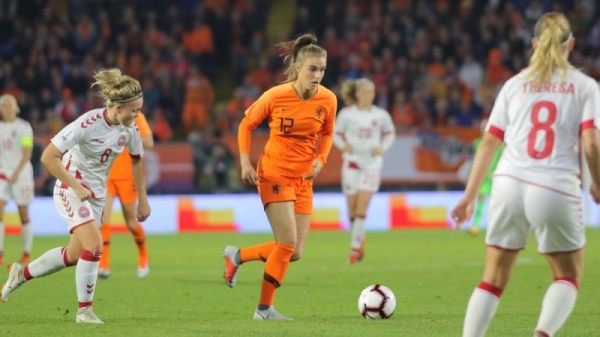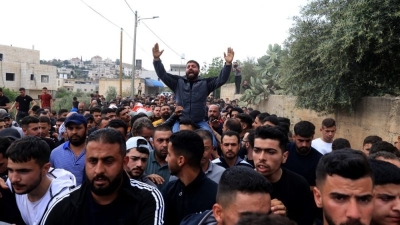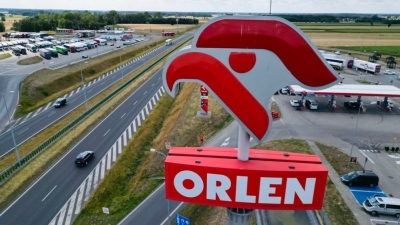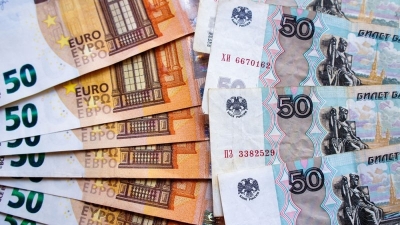Kicking inequality out of Europe using football, Latvia and Ukraine are out in front

Tackling gender inequality in Europe isn’t an open goal, but the EU’s TARGET football project provides a structured opportunity to change entrenched narratives. Latvia and Ukraine are out in front.
Children start assimilating gender stereotypes and related skills at two, the EU is now leveraging football – the world’s most popular sport – to level the playing field.
With the support of four national football federations, UEFA, and other professional partners, the TARGET project aims to combat gender bias within youth football teams and export good practices even off the green field.
Although traditionally regarded as a men’s sport, the influence and appeal of football are undeniable, and one of the most loved global sports, with millions of fans of different ages, backgrounds, and genders.
Project stakeholders argue football can drive change and help narrow the gender gap. They seek to educate young players, provide coaches with skills to promote equality among female and male players and promote gender equality in the larger society.
Getting women and girls involved
Participating football associations have already started implementing the TARGET project.
The Ukrainian Football Federation has created a working group on gender equality, while the Football Association of Estonia has chosen to promote more female coaches, to attract more girls to the game.
Latvia, as the coordinator for the implementation of this project, has undertaken a few initiatives. The board of the national football association, for example, which consists of nine members, must include at least one woman in one of the leading positions.
The federation held an international conference about gender equality and women in sports, with the participation of FIFA as well. A similar event is to be organised even this year, to strengthen the role of women in sports and involve local governments in achieving this.
The federation says there is an increased interest from businesses in sponsoring the female football league in Latvia. As a result, for the first time in the history of the Latvian Football Federation, the Women’s Football League will have its own title sponsor.
A related initiative is GOALSCORE. As football is not exempt from gender inequality and domestic violence, and discriminatory circumstances can be observed even at the level of youth teams, the project seeks to fight violence against women, raise awareness and promote football institutional support for gender equality.
UEFA Playmakers, in collaboration with Disney, and also implemented by participating associations, is another example of a project aiming to promote female football among young children, obtaining multiplier effects at the EU level.
Past projects include PROGRES, aimed at promoting gender equality, encouraging social inclusion and equal opportunities in the sports sector, specifically in football, by promoting gender mainstreaming within football federations and associations.
Acknowledging the power of football, and the worldwide growth of women’s football as a popular team sport, UEFA President Alekskander Čeferin says, “We are determined to give a strong impetus to help push the European women’s game forward in the years to come. This is the right time to encourage girls and women to get even more involved in football.”
Reaching gender equality, much to do
Achieving gender equality is the fifth goal of the United Nations Sustainable Development Goals (SDGs). Acknowledging the progress made over the last decades, the UN however argues the world is not on track to achieve gender equality by 2030.
According to the European Institute for Gender Equality (EIGE), the European Union scored 70.2 points out of 100 in the Gender Equality Index 2023. Although the score represents a moderate improvement compared to the previous one, EIGE remarks that the EU still has much to do.
The health domain had the best performance regarding gender equality, while the domain of power remained the one where gender inequalities were most pronounced.
Member states such as Austria, Germany, Spain, France and Luxembourg performed better than the EU average on gender equality, thus widening the gap with the bloc in terms of upward convergence.
Bulgaria, Cyprus, Greece, Croatia, Italy, Lithuania, Malta and Portugal were considered catching up, while Czechia, Estonia, Hungary, Latvia, Poland, Romania and Slovakia scored significantly lower than the EU average.
Belgium, Denmark, Finland, Ireland, the Netherlands, Sweden, and Slovenia exhibited gender equality levels higher than the EU average, but their progress has been slower than the bloc’s average.
[By Xhoi Zajmi I Edited by Brian Maguire | Euractiv’s Advocacy Lab ]
Read more with Euractiv




